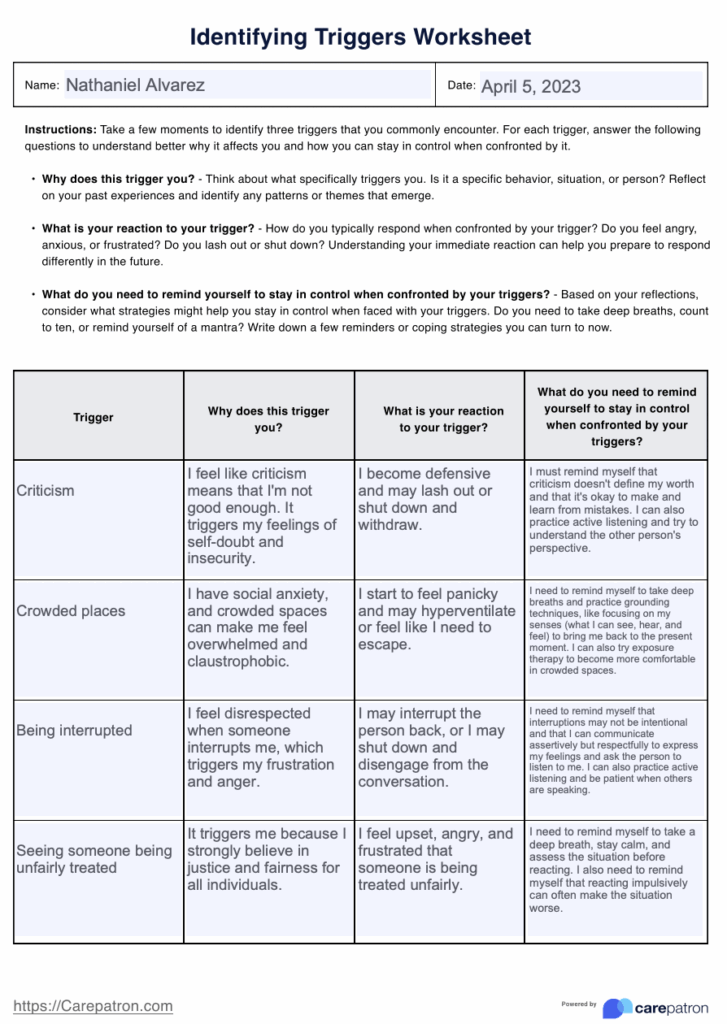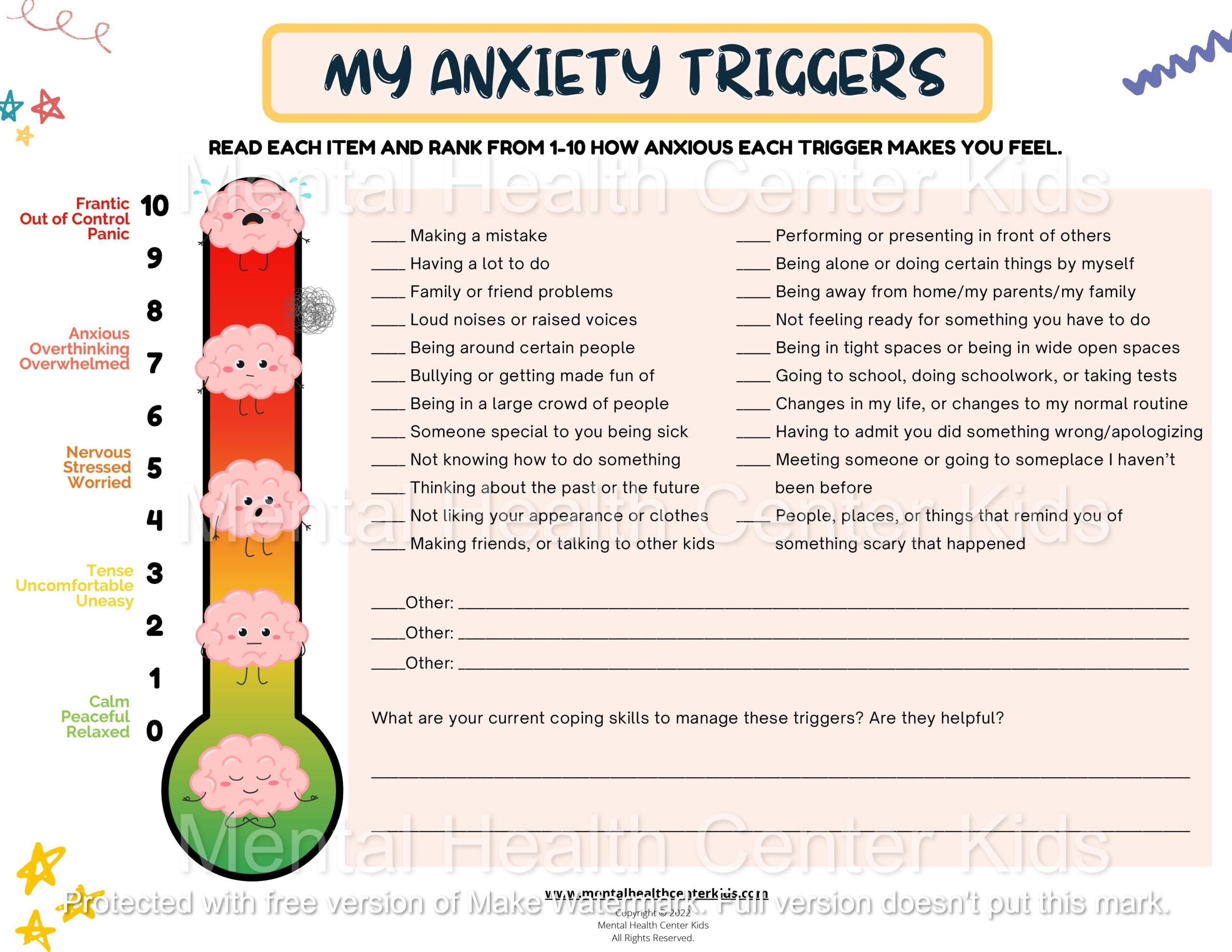Anxiety is a common mental health issue that affects many individuals. It can be triggered by various factors, such as stress, trauma, or negative thinking patterns. Identifying and understanding these triggers is an important step in managing anxiety effectively.
A useful tool for recognizing anxiety triggers is an anxiety triggers worksheet. This worksheet allows individuals to pinpoint specific situations, thoughts, or emotions that lead to feelings of anxiety. By completing the worksheet, individuals can gain insight into their triggers and develop strategies to cope with them.
How to Use an Anxiety Triggers Worksheet
When using an anxiety triggers worksheet, it is important to be honest and reflective. Start by listing potential triggers, such as social situations, work deadlines, or specific memories. Next, consider how each trigger makes you feel and how you typically respond to it. This self-awareness can help you identify patterns and develop coping mechanisms.
It can also be helpful to categorize triggers based on their impact and frequency. Some triggers may be mild and occur infrequently, while others may be severe and occur regularly. Understanding the severity and frequency of your triggers can guide you in prioritizing which ones to address first.
Additionally, consider seeking support from a therapist or counselor when using an anxiety triggers worksheet. A mental health professional can provide guidance, feedback, and additional strategies for managing anxiety triggers. Remember that it is okay to ask for help and that you do not have to navigate your anxiety alone.
Finally, remember that managing anxiety is a journey, and progress may take time. Be patient with yourself and celebrate small victories along the way. By using an anxiety triggers worksheet and staying committed to your mental health, you can learn to cope with anxiety more effectively and improve your overall well-being.
In conclusion, an anxiety triggers worksheet is a valuable tool for identifying and managing anxiety triggers. By completing this worksheet and seeking support from a mental health professional, individuals can gain insight into their triggers and develop effective coping strategies. Remember that managing anxiety is a process, and with time and dedication, you can learn to navigate your triggers and improve your mental health.

